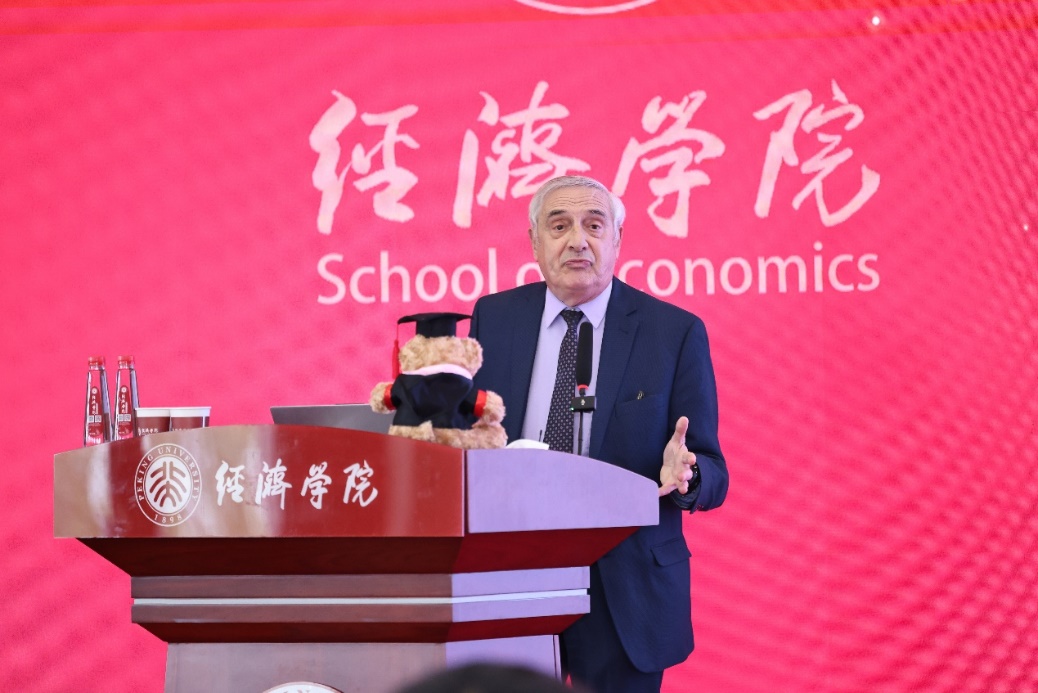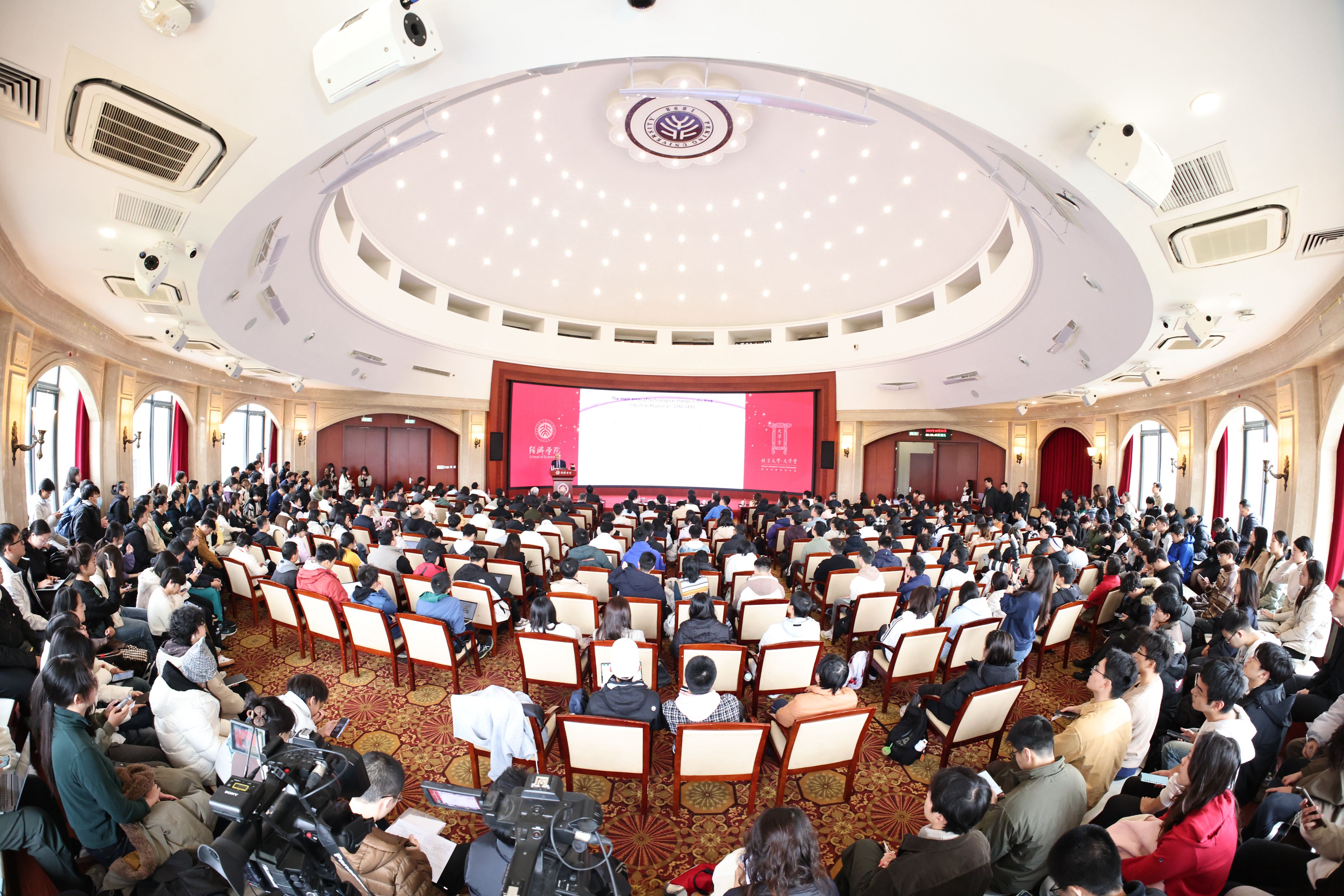Peking University, October 27, 2025: Peking University (PKU) welcomed Professor Joel Mokyr, the 2025 Nobel Laureate in Economic Sciences and Robert H. Strotz Professor of Arts and Sciences and professor of economics and history at Northwestern University, for a distinguished visit and lecture titled “The Industrial Revolution and the Origins of Modern Economic Growth: A New Look.”

Professor Joel Mokyr
Jointly organized by the PKU School of Economics and the Office of International Relations, with support from the University Global Fellowship Program, the event celebrated Professor Mokyr’s outstanding scholarly contributions to economic history and innovation studies. During the visit, Peking University School of Economics conferred upon him the title of Honorary Professor.
Professor Mokyr positioned the British Industrial Revolution as the pivotal turning point in modern economic history. He argued that while other factors, such as demographics and trade, played a role, the revolution was fundamentally a technological phenomenon. It was, he stated, the moment we "invented how to invent," creating a sustained cycle of growth unlike any previous, short-lived burst of innovation.
Professor Mokyr highlighted how 18th-century Britain's progress was driven by "social focusing devices"—a set of pressing economic challenges that directed innovative efforts. The society focused on solving key issues, including pumping water from coal mines, preventing smallpox, producing competitive ceramics, and mechanising textile spinning. He noted that by 1815, Britain had successfully found solutions to nearly all these agenda items, with the notable exception of producing steel efficiently.
What set this period apart, Mokyr explained, was its escape from the negative feedback loops that had historically returned economies to a stagnant equilibrium. The 18th century, particularly in Britain, created a powerful positive feedback loop of innovation. This was driven by a unique cultural shift known as the "Industrial Enlightenment"—a pragmatic, applied movement focused on solving concrete economic problems. Society's "focusing devices," such as the need to pump water from mines, prevent smallpox, and determine longitude at sea, directed inventive activity toward high-impact areas.
Crucially, Mokyr emphasised that brilliant ideas were not enough. The critical, often-overlooked component was "competence"—the exceptional skill of artisans, mechanics, and engineers who could turn blueprints into working machines. "The difference between Leonardo [da Vinci] and [James] Watt," he poetically noted, "was that Watt had [the master ironworker] Wilkinson, and Leonardo did not." This combination of enlightened inquiry and supreme craftsmanship in Britain created an environment where inventions like the steam engine could be continuously improved and applied, preventing technological progress from fizzling out and instead launching the "Great Enrichment" that has shaped the modern world.
 Written by
Written by: Jawad Shabbir
Edited by: Aneka Rebecca Rajbhandari, Chen Shizhuo
Photo by: Office of International Relations, Peking University

